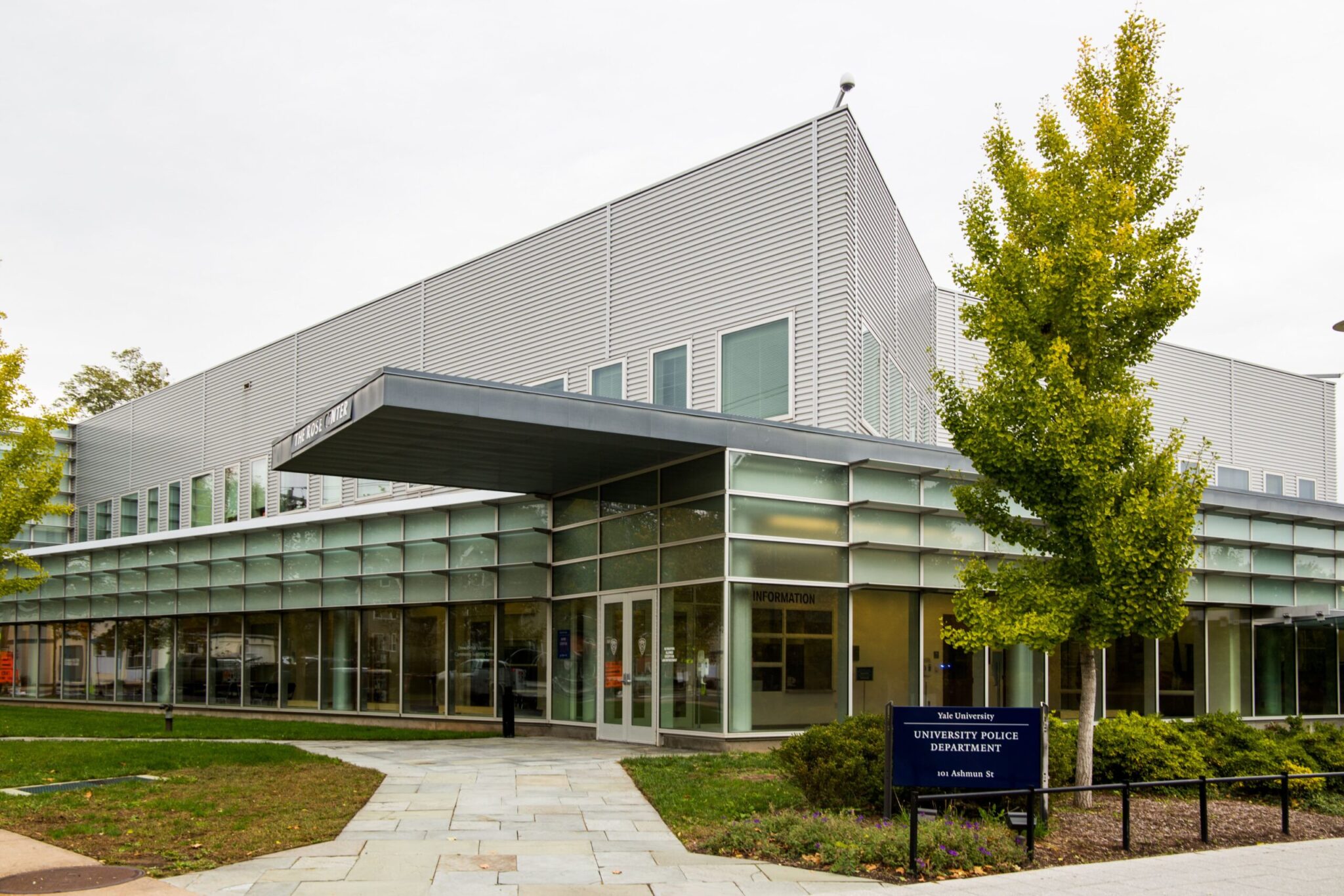Annual public safety figures report increase in sexual assault cases, decrease in robberies
In late September, Yale Public Safety published its annual security and fire safety report compiling statistics for 2022.

Lucas Holter
Content warning: This article describes sexual violence.
SHARE is available to all members of the Yale community who are dealing with sexual misconduct of any kind, including sexual assault, sexual harassment, stalking, intimate partner violence and more. Counselors are available any time, day or night, at the 24/7 hotline: (203) 432-2000.
Yale Public Safety’s annual statistics release shows an increase in crime over 12 categories, with reported increases in sexual assaults and decreases in robberies and burglaries. This year’s report also made no mention of new policy changes within Yale Public Safety or the Yale Police Department.
Yale Public Safety published its Annual Security and Fire Safety Report on Sept. 28. The report compiles crime statistics between Jan. 1, 2022 and Dec. 31, 2022, and it includes data from the two previous calendar years. The report also outlines security-related policies and resources at Yale. Compared to the previous two years, reported burglaries, drug arrests and robberies have decreased while reported aggravated assaults, vehicle thefts, stalking and sexual assaults increased.
“Crime data is collected from the [Yale Police Department], New Haven Police Department, and law enforcement agencies in jurisdictions where Yale owns or controls property that is used in support of the educational purpose or academic mission of the university,” YPD Chief Anthony Campbell wrote to the News.
Graph:
The number of reported murder cases fluctuated minimally, rising from zero in 2021 to one in 2022. Total documented robberies have declined from 22 two years ago to nine in 2022.
Total reported rape cases on Yale’s campus have risen from 18 cases in 2020 and 28 in 2021 to 41 cases in 2022. This comes as students made a full return to campus in 2022 after Yale operated on a hybrid model from March 2020 to August 2021 due to the COVID-19 pandemic.
Campbell theorized that the increase could be due to an increased awareness and reporting of sexual misconduct.
“While we cannot know with certainty the reasons for the increase in sexual assaults reported, this may reflect, at least in part, a growing awareness of the ways in which Yale’s resources can be helpful in addressing instances of sexual misconduct,” Campbell wrote.
On-campus resources that are designed to respond to sexual misconduct include the YPD, the Title IX office, the Office of Gender and Campus Culture and the Sexual Harassment and Assault Response and Education Center.
Jason Killheffer, director of Title IX programs on campus, discussed other prevention and awareness efforts such as Yale’s online Preventing and Responding to Sexual Misconduct training module and the Communication and Consent Educators initiative.
Killheffer added that the increase in reported numbers of sexual assaults at Yale could, in part, potentially be attributed to larger numbers of students returning to campus after the COVID-19 pandemic.
“While we cannot determine with certainty the reasons for an increase in disclosures of sexual misconduct, we – like many of our peer institutions – have noted an uptick in disclosures since the return to on-campus living and learning after the COVID-19 pandemic,” Killheffer wrote. “In addition, an increase in disclosures may reflect greater awareness of and use of University support resources.”
Yale Public Safety made no major policy changes in the last calendar year. They continue to offer resources such as the LiveSafe App, an app Yale has used since 2015, which provides a real-time Yale Shuttle tracker and security escort service and contains a list of other campus resources.
Another resource that allows students to have input on YPD policymaking is the Yale Police Advisory Board. The six-person board, created in 2019, responds to civilian complaints against the YPD within and outside the Yale community.
“We’ve been … educated about the law, and what police can and cannot do,” Craig Birckhead-Morton ’24, the Board’s undergraduate representative, said. “If an undergraduate or anybody in the community … wanted to report some sort of police misconduct, we certainly would address that.”
So far this year, according to Birckhead-Morton, the YPAB has not received complaints. Birckhead-Morton said he hopes to promote the YPAB as a resource for students.
“The entire time I’ve been at this university policing has been a huge issue, both here and across the country,” he said. “I think it’s really important that students get more or have more input on the issue.”
Birckhead-Morton was appointed to his position last October by the previous Yale College Council president.







